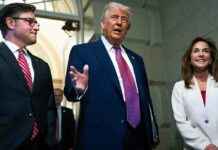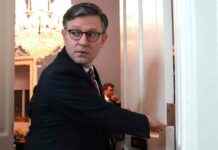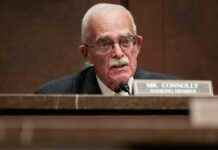At the Munich Security Conference, EU foreign policy chief Kaja Kallas emphasized the crucial role of Europe in facilitating a peace deal between Russia and Ukraine. Stressing that the involvement of Ukrainians and Europeans is essential in implementing any agreement, Kallas highlighted the significance of their participation in shaping the future of the region. Her remarks underscored the pivotal role that Europe plays in fostering stability and security in the face of escalating tensions.
Stunning Reactions to U.S. Vice President’s Speech
Kallas’ statements came in response to a controversial speech delivered by U.S. Vice President JD Vance, which sent shockwaves through European officials. Vance’s scathing critique of European democratic institutions and free speech practices raised concerns about the internal challenges facing the continent. Expressing unease over the erosion of fundamental values shared with the United States, Vance’s remarks signaled a growing ideological and geopolitical divide between the two powers.
European reactions to Vance’s speech were mixed, with some officials interpreting it as an attempt to provoke conflict. Kallas characterized Vance’s address as confrontational, suggesting a strained relationship between the U.S. and its European allies. While acknowledging the need to address domestic issues, Kallas emphasized the importance of collaboration in countering external threats to transatlantic security.
Insights from European Leaders and Experts
Finnish officials offered nuanced perspectives on Vance’s speech, acknowledging both its provocative nature and underlying truths. Foreign Minister Elina Valtonen highlighted the value of free speech in Europe and called for constructive dialogue to address internal divisions. Emphasizing the need for unity in the face of autocratic regimes, Valtonen underscored the importance of preserving democratic principles across the continent.
President Alexander Stubb echoed Valtonen’s sentiments, suggesting that Vance’s speech was tailored to a domestic audience. While acknowledging the need for increased defense spending and enhanced security measures, Stubb emphasized the importance of diplomatic engagement in transatlantic relations. Recognizing the wake-up call prompted by the Trump administration, Stubb called for a balanced approach to addressing security challenges in Europe.
Against the backdrop of global security concerns, the Munich Security Conference serves as a critical forum for shaping the future of international relations. With a focus on Ukraine’s peace talks with Russia and Europe’s evolving defense landscape, the summit offers a platform for dialogue and cooperation among world leaders. As discussions unfold on the geopolitical stage, the role of Europe in fostering peace and stability remains paramount in navigating the complexities of international diplomacy.

























